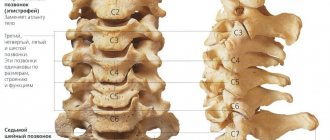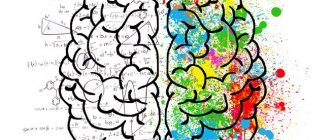Publication date: January 12, 2021
Insomnia (insomnia) and other sleep disorders can affect a person at any age. Teenage insomnia has become a significant problem these days. Sleep disturbance in a teenager requires treatment, since otherwise exhaustion of the nervous system quickly develops. During a period of active growth and development, a person needs to sleep more than 8 hours a day, otherwise the body simply does not have time to fully rest.
What measures to take for insomnia in a teenager?
For sleep disorders in a teenager, treatment often requires the participation of an experienced psychotherapist. Insomnia is not a disease, but only a manifestation of another, deeper problem. First of all, you need to find out what is causing your difficulty falling asleep and eliminate the root cause. Regardless of the cause, there are a number of general steps you can take to improve your sleep.
- It is important to exclude late meals, i.e. do not overeat at night. You can have a hearty dinner 3-4 hours before bedtime. If hunger prevents a teenager from falling asleep, it is advisable to offer him a glass of yogurt or other fermented milk product.
- It is important to ventilate the room where the child sleeps well. The room temperature should not exceed +24°C.
- If you have sleep disorders in teenagers, you should hang thick curtains in the bedroom, since complete darkness promotes the synthesis of the hormone melatonin, which is responsible for sleep.
- Just before going to bed, it is not recommended to watch TV or sit at the computer.
Important: One of the causes of nervous overexcitation is television programs and computer games with scenes of violence.
- If a teenager has the habit of sleeping during the day, this is even useful. The main thing is not to go to bed after 5 pm.
- You need to go to bed at the same time, both on weekdays and on weekends.
- It is important for a teenager to fall asleep with a positive emotional attitude, so there is no need to have serious conversations with him in the evening.
If the above measures do not lead to positive changes, you may need to seek help from a specialized clinic. To treat insomnia in adolescents, doctors will use hypnosis (classical or Ericksonian). For serious problems, acupuncture (acupuncture) and neuroprotective therapy are practiced.
Sessions of individual psychotherapy in the treatment of sleep disorders in adolescents will help cope with negative emotions, restore and maintain emotional balance, and also overcome the consequences of mental trauma.
The text was checked by expert doctors: Head of the socio-psychological service of the Alkoklinik MC, psychologist Yu.P. Baranova, L.A. Serova, a psychiatrist-narcologist.
CAN'T FIND THE ANSWER?
Consult a specialist
Or call: +7 (495) 798-30-80
Call! We work around the clock!
Consequences of teenage sleep deprivation
The developing teenage brain requires eight to 10 hours of sleep each night. The effects of chronic (ongoing) sleep deprivation may include:
- difficulty concentrating;
- problems at school;
- reduced attention span;
- memory impairment;
- poor decision making;
- lack of enthusiasm;
- moodiness and aggression;
- depression;
- slow physical reflexes;
- clumsiness that can lead to physical injury;
- decreased athletic performance;
- decline in academic performance;
- illness;
- absenteeism.
Effective methods of therapy at the YUG Clinic
In our Sleep Medicine Clinic, treatment is carried out by specialists in two areas:
- treatment with medications;
- psychotherapy.
Doctors with many years of experience develop a treatment program for each patient, taking into account the developmental characteristics of the body at their age. In children under one year of age, some methods and medications are used in treatment, while in older patients, others are used.
To treat children with insomnia, doctors use medications with sedative and hypnotic effects. To improve the quality of sleep for infants after one year, doctors are already using medications based on herbal remedies. Homeopathic remedies are also considered harmless.
Sleeping often returns to normal on its own after the mother manages to adjust her child’s sleep/wake patterns and creates all the conditions necessary for rest. If your night's rest remains restless, it is better to make an appointment with a specialist.
Parents' actions
If you think it's worth visiting your doctor. Excessive fatigue can be caused by all sorts of health problems, not just sleep problems.
If you suspect a sleep problem, your doctor will look at your overall health and sleep habits. In addition to the physical examination, the doctor will take your medical history, ask you about any problems and symptoms you have, your past health, your family's health, medications you take, allergies, and other problems.
It's unlikely that tests can be done to find out whether there might be some structural problem interfering with your sleep.
Sleep disturbances go beyond the norm exactly at the moment when they begin to cause inconvenience, take away strength, and depress your mood. To always be normal, you need to give your body and brain time to rest, helping you fall asleep only with the help of folk remedies. For all other cases there is medicine and doctoral practice.
Pediatrician's recommendations on how to improve your baby's quality of rest
Psychologists have confirmed the opinion that it is better for a baby to sleep with his mother in the same bed. This way he will be calmer. The smell of the mother, the warmth of the body and the accessibility of the breast soothe the baby. If the baby is scared of something at night, the mother will quickly put her to rest. This will increase the likelihood that a child under one year old will not experience sleep disturbances.
In order for a mother to improve the quality of her child’s rest at night, it is necessary to create appropriate conditions. It’s good when a baby falls asleep to quiet sounds (parents’ voices, noise outside the window, etc.).
Before resting at night, you should thoroughly ventilate the bedroom. Relaxing in the fresh air is beneficial and increases the body's resistance to colds. With older children, you can take a walk in the fresh air so that they sleep even more soundly.
Pay special attention to the bed. The pillow should be comfortable, the blanket should be light and comfortable. It’s better when the kids are neither hot nor cold. If your baby likes to open up, put on socks to prevent his feet from freezing. For older people, it is important to choose the right pillow; you need to pay attention to its height.
Best Sleep Tips for Teens
The typical teenage brain wants to stay up late and sleep late the next morning, which is usually difficult to control. You may be able to adjust your child's biological clock, but it takes time. Offers include:
- Relax before bed; for example, you can take a bath and drink a hot milk drink before bed, or use meditation. Yoga can also help.
- Avoid computers, TV or smartphones, loud music, homework, or any other activity that keeps your brain active an hour before bed.
- Avoid stimulants in the evening, such as caffeine and energy drinks.
- Keep the bedroom dark at night. The brain's sleep-wake cycle is largely determined by the light it receives through the eyes. Try to avoid watching TV or using smartphones right before bed. Expose your eyes to plenty of light in the morning to wake up your brain.
- Do the same bedtime routine every night for at least four weeks so that your brain associates the routine with falling asleep.
- Start falling asleep a little earlier than usual (for example, 10 minutes). Do this for one week. Add an additional 10 minutes each week until you reach your desired sleep time.
- Get active during the day.
- Create a comfortable sleeping environment.
- Set a regular wake-up time.
- Avoid staying up late on weekends.
Remember that even 30 minutes of extra sleep every night on a regular basis makes a big difference.
Symptoms of insomnia
Sleeping disorder often occurs in infants and children 2–4 years old. Parents may notice insomnia or insomnia in their child. With insomnia, the baby wakes up more often at night, the period of falling asleep is extended, and the number of deep stages is reduced.
The main signs of sleep disturbance that parents notice in their children are:
- frequent awakenings at night (baby gets up 5-10 times during the night);
- impaired attention in older children (2, 3, 4 years old);
- irritability during the day;
- moodiness;
- increased tearfulness;
- impaired concentration, memory;
- fatigue.
It is with such complaints that parents turn to neurologists at the Rostov-on-Don clinic for professional help.
What to do if the advice doesn’t help?
If lack of sleep is still a problem despite your best efforts, we offer the following suggestions:
- Assess your sleep hygiene. For example, factors that can affect the quality of your sleep include a noisy bedroom, a lumpy mattress, or a habit of lying awake.
- Consider learning a relaxation technique to help you get ready for bed.
- Avoid eating or drinking caffeinated foods after lunch.
- Avoid recreational use of alcohol, tobacco, as they can lead to sleep disturbances and poor sleep quality.
- Contact your healthcare provider if self-help techniques do not improve your sleep at night.
Read also:
- Chronic sleepiness or how to overcome the constant desire to sleep
- How to sleep to get enough sleep
Diagnosis of pathology
A sleep disorder that occurs at any age necessarily requires professional correction. To ensure everyone has a restful night's rest, it is important to pinpoint the cause of their insomnia or other sleep disorder. You will need advice from the following highly specialized specialists:
- neurologist;
- somnologist;
- psychiatrist.
After making an appointment, doctors will examine the little patient and at the same time determine his neurological status. Then a conversation is held with the parents or with the young client, if his age allows.
To diagnose sleep disorders, specialists refer a small patient to the following highly informative studies:
- EEG. Doctors prescribe electroencephalography when there is a suspicion of epilepsy. This type of diagnosis will detect the activity of specific parts of the central nervous system.
- Polysomnography. Using this diagnostic method, doctors study each phase of sleep and analyze them. Thanks to a special device, doctors determine the moments when there are certain changes in brain activity, manifested by night terrors or other disorders. Polysomnography is considered a highly informative research method. It provides data on the functioning of the respiratory system, heart, shows blood pressure at night and other parameters.
- MRI. Prescribed to exclude/confirm lesions of the central nervous system.
- CT. An informative diagnostic option is used to confirm/exclude volumetric brain damage.
In certain cases, doctors may provide a referral for laboratory tests. If the doctor suspects that the child may have paroxysmal sleep disorder, he will order the following tests:
- UAC. ESR and hemoglobin indicators are considered important in a blood test. They help detect inflammatory processes and anemia.
- TANK. In biochemical analysis, special attention is paid to the content of components such as cholesterol, sugar. The analysis will allow doctors to confirm/exclude pathologies such as diabetes, vascular atherosclerosis.
Paroxysmal disorder is similar to epileptic seizures, so doctors need a differential diagnosis to make an accurate diagnosis.







